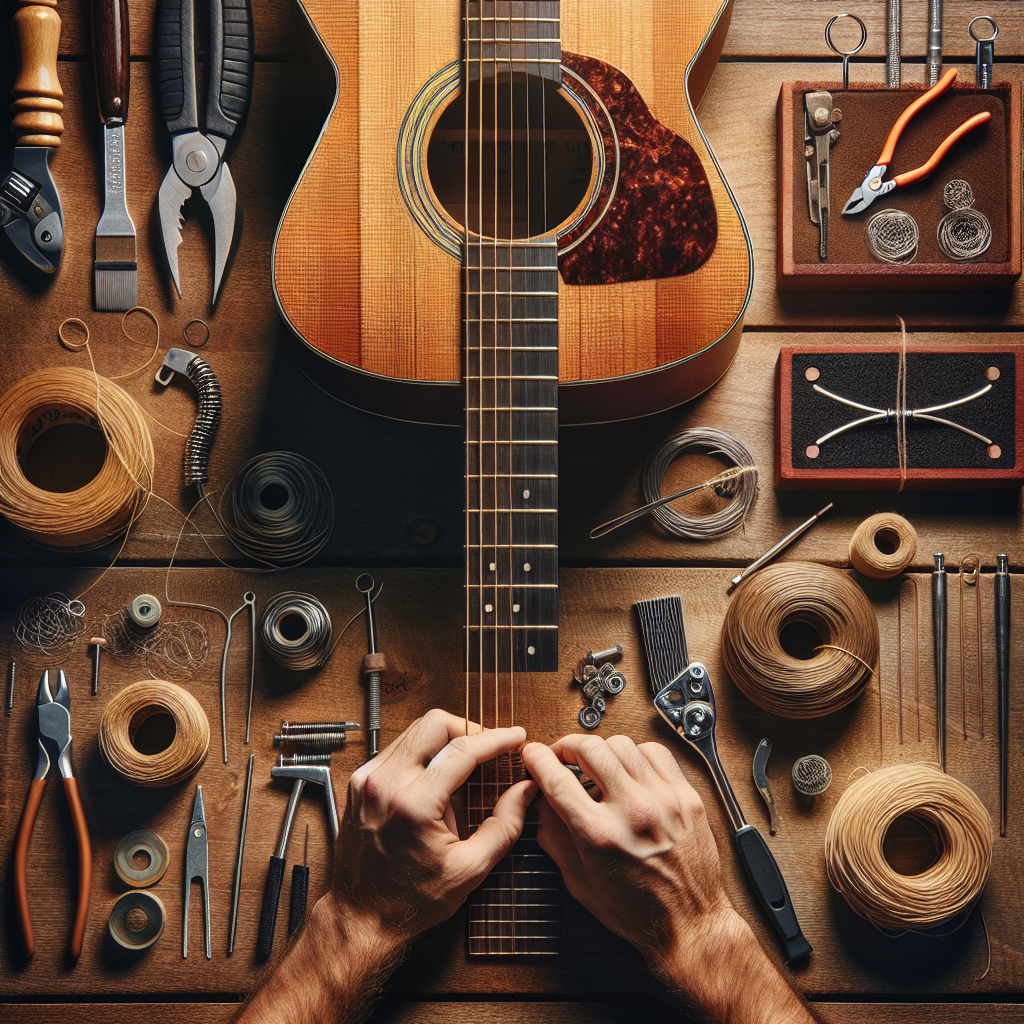
7 Best Ways to Maintain Your Guitar Strings
Are your guitar strings always breaking or losing their tone too quickly? Keeping your guitar strings in top condition is crucial for maintaining the quality of sound you produce. With proper care, you can extend the life of your strings and ensure they deliver rich sound every time you play. Here, we’ll explore seven surefire ways to keep your guitar strings sounding fresh and vibrant.
1. Keep Your Hands Clean
The oils and dirt from your fingers can quickly tarnish your strings, causing them to wear out faster. Before you pick up your guitar, make sure to wash your hands thoroughly. This simple step can significantly reduce the amount of grime that accumulates on your strings and prolong their life.
2. Regularly Wipe Down Your Strings
After playing, it’s important to wipe down your strings with a clean, dry cloth. This helps remove sweat, oils, and debris that can corrode the strings over time. Consider investing in a microfiber cloth designed specifically for guitar maintenance as it can effectively clean without damaging the strings.
3. Use a String Cleaner or Lubricant
A string cleaner or lubricant can work wonders in maintaining the condition of your strings. Products like D’Addario XLR8 String Lubricant not only clean your strings but also make them slicker, which can enhance playability and reduce wear.
4. Proper String Storage
Storing your guitar properly can also affect the longevity of your strings. Keep your guitar in a case when you’re not playing it to protect it from dust and humidity extremes, both of which can degrade the strings. Additionally, consider using a humidifier or a dehumidifier depending on the climate conditions in your area.
5. Change Strings Regularly
No matter how well you care for them, guitar strings will eventually wear out. Regularly changing your strings can ensure your guitar always sounds its best. Signs that you might need new strings include dullness in sound, difficulty staying in tune, and visible corrosion.
6. Limit Excess Tension
Maintaining the correct tension on your guitar strings is vital. Excess tension can cause strings to break or degrade faster. Ensure your guitar is properly tuned and avoid over-tightening the strings when tuning or altering their placement.
7. Learn Proper Picking Technique
How you play your guitar also impacts string longevity. Aggressive picking or improper technique can cause unnecessary stress on the strings, leading them to wear out prematurely. Take time to learn and practice good technique, as it will benefit both your strings and overall playing ability.
FAQs
1. How often should I change my guitar strings?
This can vary depending on how often you play and your style of playing. Generally, changing them every 3 months or after about 100 hours of playing is recommended for regular use.
2. Can I use household cleaners on my guitar strings?
No, it’s not recommended to use household cleaners on your guitar strings as they can leave residues that damage the strings or affect sound quality. Use products designed specifically for string care.
3. What are the signs that my guitar strings need changing?
Signs that your strings need changing include a dull or flat sound, difficulty keeping the guitar in tune, visible rust or breakage, and sticky or rough texture when playing.
4. Is it necessary to loosen guitar strings when not in use?
No, it is generally not necessary to loosen your guitar strings during short-term storage. However, if storing for extended periods, you might slightly loosen them to alleviate tension on the neck.
5. Do different string materials require different maintenance?
Yes, strings made from different materials may have specific care guidelines. For example, coated strings might require less frequent changes, while some metals are more corrosion-resistant than others.
6. What can I do if my strings squeak when playing?
If your strings squeak during play, consider using a string lubricant which can help reduce noise and improve the playability of your guitar. Additionally, refining your playing technique may help minimize squeaks.
Maintaining your guitar strings is an essential part of instrument care that ensures your sound remains high-quality every time you play. By following these tips, you can extend the life of your strings and save money on frequent replacements. Take the time to incorporate these practices into your routine and enjoy the sweet sound of well-maintained strings!